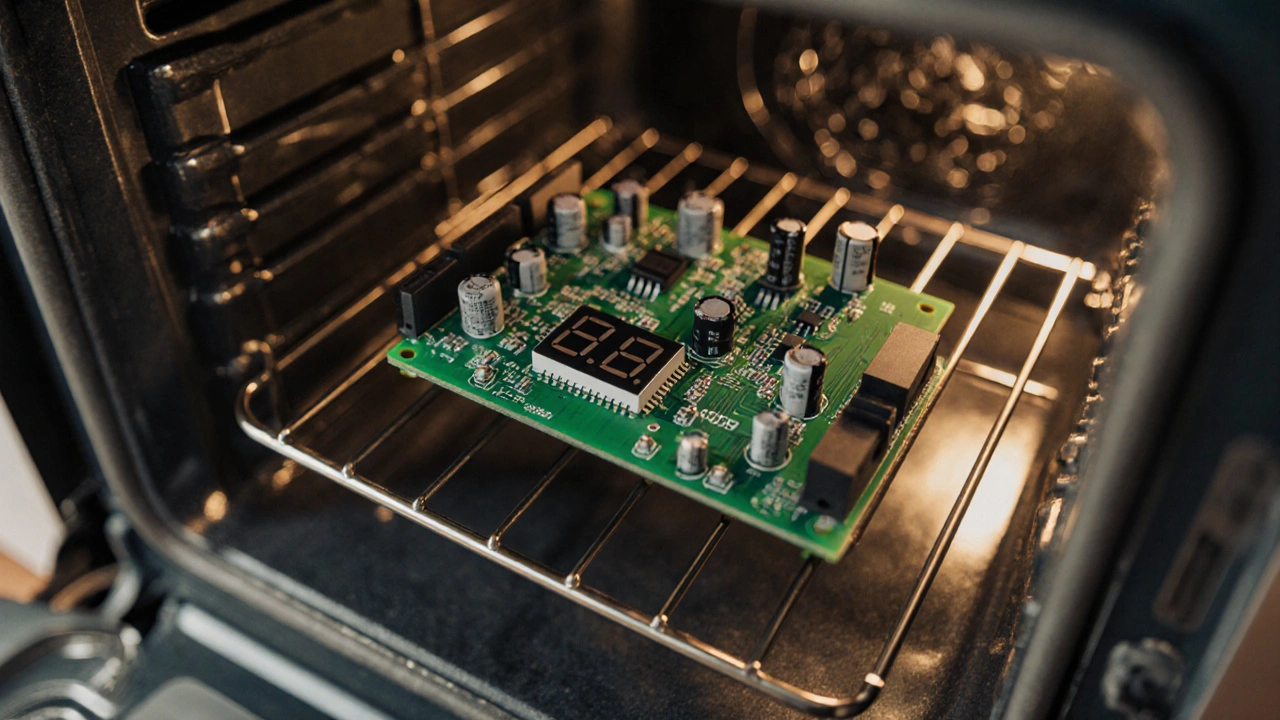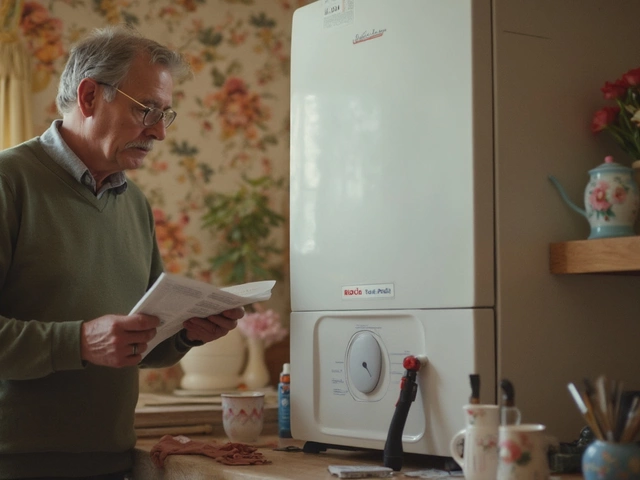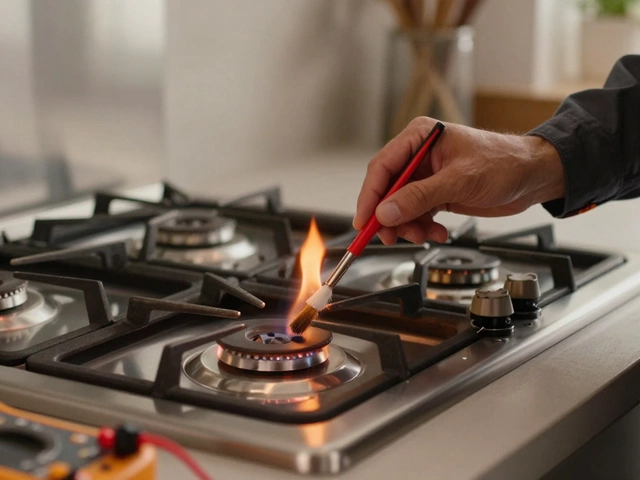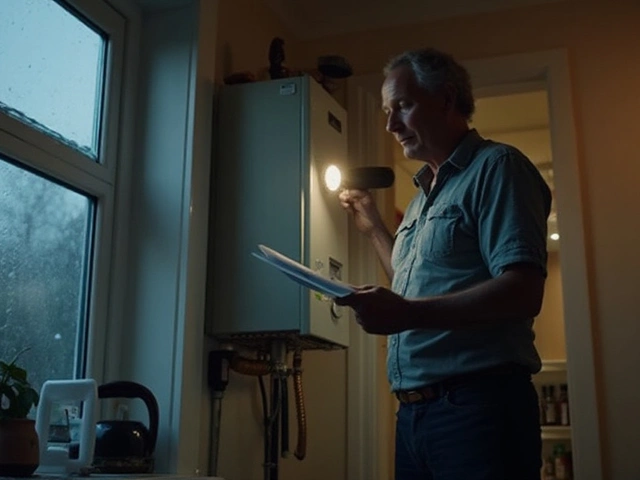Oven Voltage Diagnostic Tool
Voltage Verification Check
Verify if your oven is receiving proper voltage before diagnosing control board issues. This tool helps determine if low voltage could be causing your symptoms.
The oven control board is the brain of an electric oven, managing everything from temperature settings to timer functions. When it starts to fail, you’ll notice strange behaviour that can leave you wondering whether the whole appliance needs replacing.
Common Signs Your Control Board Has Gone Bad
Before you start pulling the oven apart, look for these tell‑tale signs:
- Power turns on but the oven never heats.
- Random or incorrect temperature readings on the display.
- Error codes that don’t match the user manual.
- Touchpad or dial becomes unresponsive.
- Intermittent operation - the oven works one day and quits the next.
If you see more than one of these, the control board is a prime suspect.
Understanding What a Control Board Does
When you first open the back panel of an Electric oven a kitchen appliance that uses electric heating elements to bake and roast food, you’ll notice a compact green or black circuit board with rows of tiny components.
The board receives input from the Thermostat a sensor that measures the oven’s internal temperature and sends signals to maintain the set point, the Touchpad the digital interface where you select bake, broil, or set the timer, and the Timer relay a switch that turns the heating element on and off based on the programmed time. It then powers the Heating element a metal coil that converts electricity into heat inside the cooking cavity and updates the display.
If any of those signals get scrambled, the board can send the wrong commands, resulting in the symptoms listed above.
Step‑by‑Step Diagnostic Checklist
- Unplug the oven and let it cool for at least 10 minutes.
- Remove the back access panel - you’ll typically need a screwdriver.
- Visually inspect the board for burnt marks, bulging capacitors, or broken traces.
- Using a Multimeter an electronic test instrument that measures voltage, resistance, and continuity, check the input voltage at the board’s power connector. You should see 120 V (Australia) or 240 V depending on your model.
- Probe the output leads that go to the heating element. A healthy board will deliver continuous voltage when the oven is set to bake.
- Cross‑reference any error codes with the manufacturer’s service manual.
- If all voltages read correctly but the oven still misbehaves, the board’s internal logic is likely compromised.
Document each reading - it makes it easier for a technician to pinpoint the fault.
Typical Failure Modes
Control boards can fail for several reasons:
- Power surges: Spikes from the grid or a faulty Circuit breaker a safety device that cuts off electricity when current exceeds a set limit can fry components.
- Moisture ingress: Steam from cooking can seep into the panel if the oven’s seal is compromised.
- Age‑related wear: Solder joints can crack after years of heating‑cooling cycles.
- Manufacturing defects: Some brands have known batch issues with specific capacitor types.
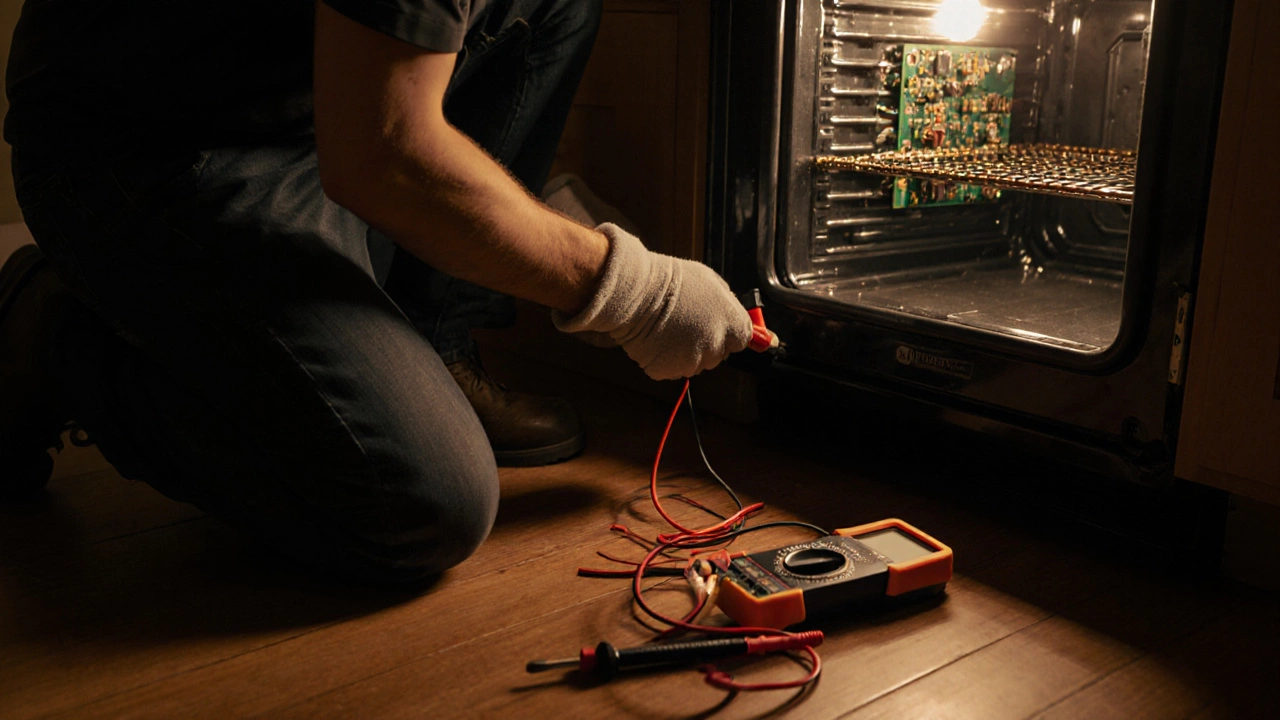
Repair vs. Replace: Which Is Right for You?
In most home settings, replacing the board is the most reliable route. Here’s why:
| Option | Cost (AUD) | Typical Labor | Longevity |
|---|---|---|---|
| Repair (component‑level) | 30‑80 | 1‑2 hrs | 6‑12 months (if part isn’t a common failure) |
| Replace board | 120‑250 | 1‑2 hrs | 5‑10 years (new board) |
Replacing the board usually costs a bit more but restores the oven to factory performance. If you have a solid warranty or the oven is under a service plan, the technician may source a refurbished board at a lower price.
Safety First: Power and Grounding Precautions
Working on high‑voltage appliances can be dangerous. Follow these rules:
- Always disconnect the oven from the mains. Verify the circuit is dead with a multimeter.
- Wear insulated gloves and use tools with non‑conductive handles.
- Check that the Power cord the flexible cable that supplies electricity to the oven is intact; a damaged cord should be replaced before reconnecting.
- If you’re unsure about any step, call a licensed Appliance technician a professional trained to diagnose and fix household appliances. It’s better to spend a little extra than risk injury.
Preventative Maintenance to Extend Board Life
Simple habits can keep the control board healthy for years:
- Wipe spills immediately - especially sugary or salty liquids that can conduct electricity.
- Leave the oven door slightly ajar after use to let moisture evaporate.
- Install a surge protector on the dedicated oven circuit.
- Schedule a yearly visual inspection if you use the oven heavily (e.g., ≥5 hours a day).
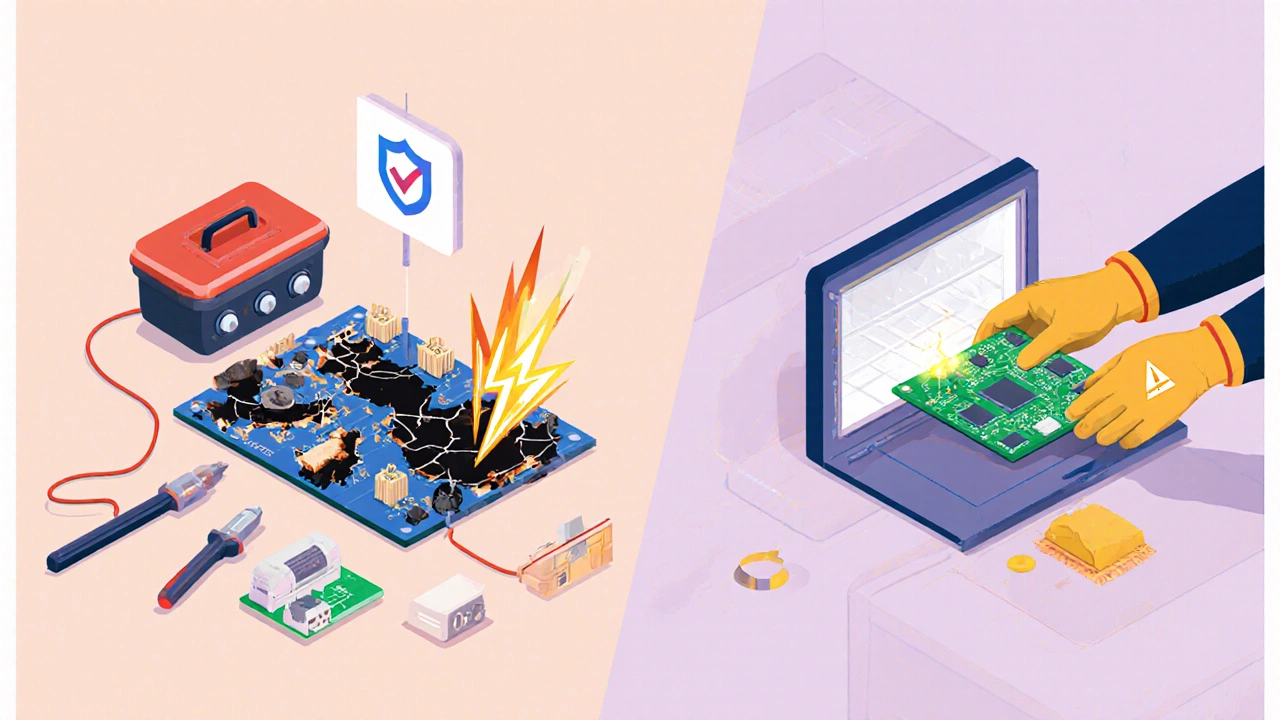
When to Call a Pro
Even if you’re handy, some scenarios merit a professional’s touch:
- The oven shows multiple error codes that you can’t decode.
- You discover burnt components on the board - they often require replacement of the entire board.
- Testing reveals correct voltages, yet the oven still won’t heat. The issue may lie deeper in the control logic.
- You lack a reliable multimeter or feel uncomfortable handling live wires.
A qualified technician can also perform a firmware update if your model supports it, which sometimes resolves unexplained glitches.
Quick Troubleshooting Cheat Sheet
- Check power - is the oven’s outlet alive?
- Look for visible damage on the control board.
- Test input voltage with a multimeter.
- Verify output to heating element when set to bake.
- Search error code in the manual - it often points directly to the board.
- If all tests pass, replace the board.
Frequently Asked Questions
What does an oven control board control?
The board manages temperature settings, timer functions, heating element activation, and the digital display. It interprets inputs from the thermostat, touchpad, and timer relay, then powers the heating element accordingly.
Can I replace the control board myself?
Yes, if you’re comfortable working with electricity and have the right tools. The process involves unplugging the oven, removing the back panel, disconnecting the board, and snapping in a new one. Always double‑check voltage before re‑assembly.
How much does a new control board cost in Australia?
A brand‑new board typically runs between $120 and $250 AUD, depending on the oven’s make and model. Refurbished units can be 20‑30% cheaper.
My oven heats but the temperature is off - is it still the board?
Often it’s the thermostat or temperature sensor, not the board. Swap the sensor with a known good one or test its resistance. If the sensor checks out, then the board’s temperature‑control circuit may be at fault.
Why does my oven flash error codes after a power outage?
A sudden loss of power can corrupt the board’s memory. Reset the oven by unplugging it for a few minutes, then plug it back in. If the code returns, the board likely needs replacement.
